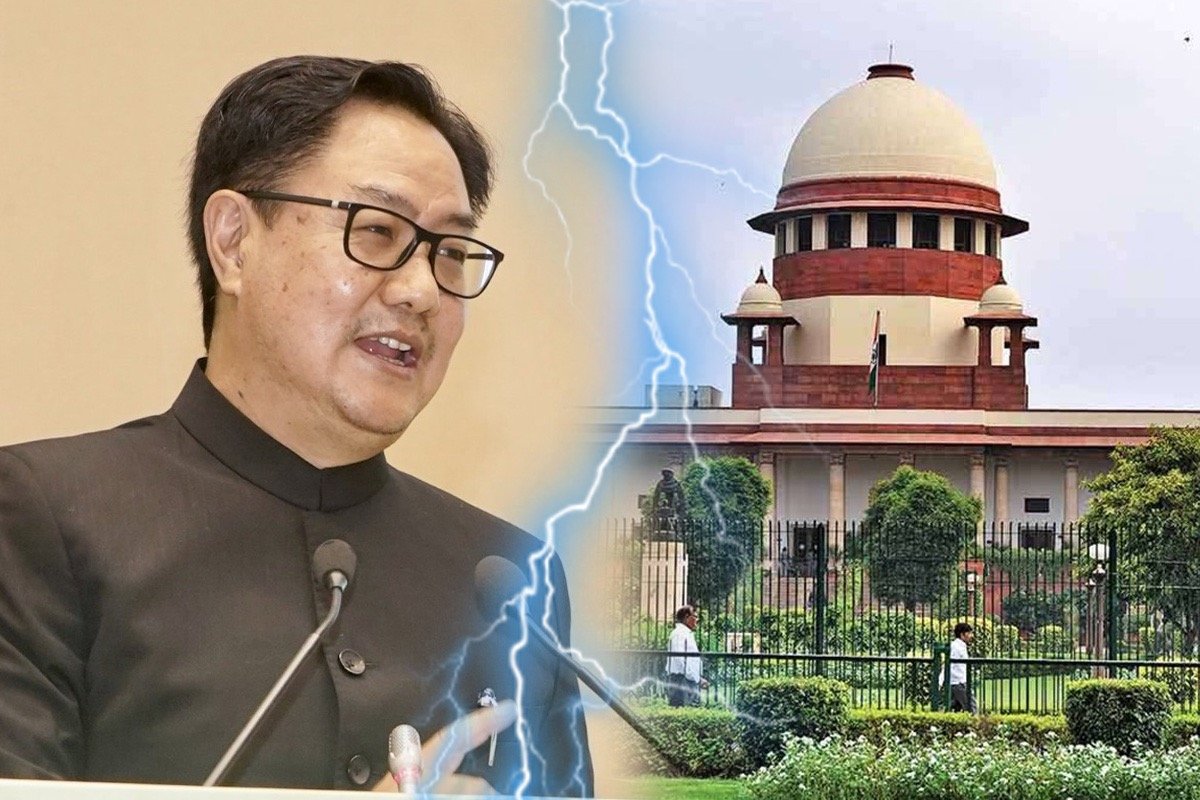The Modi government on Monday toed the Supreme Court’s line by accepting the latter’s suggestion to set up an expert panel on protecting investors from market volatility, even as its standoff with the court over judicial appointments continued.
The Centre’s highest law officer, Solicitor General Tushar Mehta, told the court that the existing regulatory and policy mechanisms were enough to tackle instances of extreme volatility but agreed to establish a committee.
The apex court was hearing a public interest litigation (PIL) seeking a probe into allegations of stock manipulation and accounting fraud levelled against the Adani Group in a damning report released by US-based Hindenburg Research in January.
The report, which led to a free fall in the stocks of the Adani Group of companies and wiped out half of its chairman Gautam Adani’s wealth, also gave the opposition a chance to attack the BJP-led central government.
In parliament, the government was cornered by opposition MPs, who accused it of extending undue benefits to PM Modi’s “friend” Gautam Adani. But the government chose not to respond. PM Modi delivered two lengthy speeches in parliament but did not name Adani even once.
Before the court, though, the government took a soft stand as judges traded cautiously on sensitive financial and regulatory matters. Solicitor General Mehta, while accepting the court’s suggestion, said the remit of the committee should be very specific because any wrong impression could stop the flow of money.
During the hearing, the Supreme Court bench led by Chief Justice of India DY Chandrachud asked the Solicitor General to suggest the remit and members for the committee.
Many believe the government’s move is a stand-down from a fierce tussle going on for months between two crucial pillars of democracy over the former’s say in appointments to the higher judiciary. Union law minister Kiren Rijiju has insisted that the government is represented in the collegium system.
For nearly a year, Rijiju has been taking swipes at the court, arguing that the collegium system often favours candidates close to judges and ignores merit.
After openly criticising the Supreme Court for the delay in appointing judges to the apex court and higher courts, Justice Minister Rijiju accused the top court of “hijacking” the Constitution.
Reacting to the Supreme Court’s objection to the government delaying appointments, Rijiju said in November last year: “Never say that the government is sitting on the files. Then don’t hand over the files to the government; appoint yourself and run the show.”
The court took strong objection to his statement and asked Attorney General R Venkataramani to resolve the issue. “Don’t make us take a judicial decision (to ensure that files are cleared),” said Justice SK Kaul.
However, as the Adani-Hindenburg controversy refused to die down and cast serious doubts on the government’s role, Rijiju softened his stand against the judiciary.
On February 4, he told a gathering in UP’s Prayagraj: “There is no judiciary versus government tussle in the country. The people who elect the government are supreme, and the entire system is being run as per the Constitution.”

